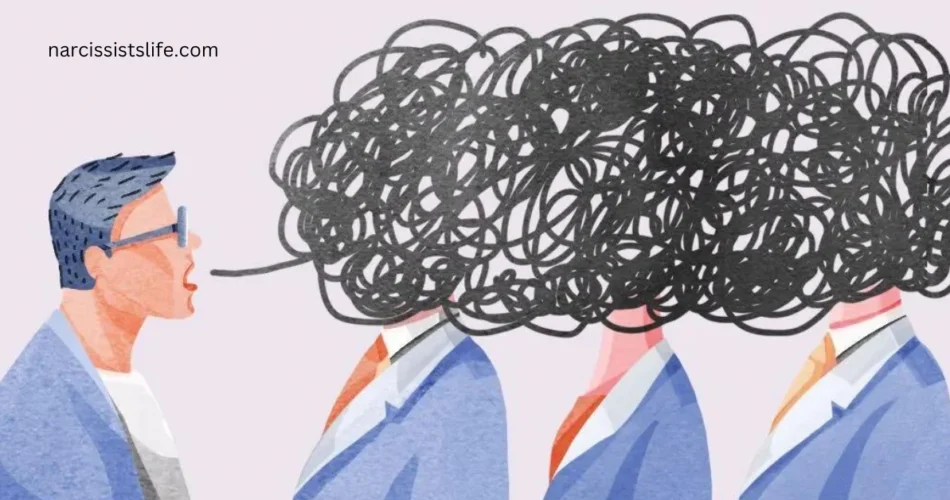Narcissists are notorious for their unpredictable and manipulative behavior. One common pattern many people observe is that narcissists agree on something then get mad at you later for the same thing they previously accepted. This bewildering cycle of agreement followed by rage leaves their victims confused and frustrated, but it’s a well-known tactic in narcissistic manipulation.
We’ll explore why narcissists behave this way, how it relates to their core personality traits, and how you can protect yourself from their emotional manipulation. The primary goal is to help you understand why narcissists agree on something then get mad at you, so you can better navigate relationships with such individuals.
Table of Contents
Why Narcissists Agree on Something Then Get Mad at You
It’s important to recognize that narcissists thrive on control, power, and dominance. When a narcissist initially agrees with you, they may be playing along to maintain the upper hand. They often seem agreeable in the beginning because it serves their interests at that moment. However, as soon as they feel threatened, insecure, or out of control, their mood shifts. This shift can result in sudden anger or hostility directed toward you.
The reason narcissists agree on something then get mad at you is rooted in their fragile self-esteem. Narcissists rely on external validation to maintain their inflated sense of self-worth. When they initially agree, they may be using the agreement as a tool to manipulate or gain favor. Once they no longer feel in control or feel like they’re losing the upper hand, their insecurity triggers their anger.
The Narcissist’s Need for Control
At the core of every narcissist’s behavior is the need for control. Narcissists like to dominate conversations, relationships, and decision-making processes. Even when they appear to agree with you, it’s often because they are biding their time to assert their dominance later. They may say yes to something at first, but if they perceive that decision as weakening their control over you, they’ll react aggressively.
One of the reasons why narcissists agree on something then get mad at you is because they hate feeling out of control. When they feel that their power is threatened, they will lash out in anger to reassert their dominance. This emotional manipulation helps them maintain the illusion that they’re in charge, even if it confuses and hurts others in the process.

The Role of Gaslighting
Another common reason narcissists agree on something then get mad at you is gaslighting. Narcissists are known to use gaslighting to make you doubt your own reality. They will agree to something, only to later deny that they ever agreed, making you question your memory or sanity. For example, a narcissist might agree to a specific plan, only to get mad at you later, claiming they never consented. This tactic leaves you confused and makes it easier for them to control you.
Gaslighting is a hallmark trait of narcissistic manipulation. By flipping the script on what they initially agreed to, narcissists can make you feel as though you’re always in the wrong. This behavior further erodes your confidence and makes it easier for them to maintain power over you. If you’ve ever wondered why narcissists agree on something then get mad at you, gaslighting is often a significant part of the answer.
Narcissistic Rage and Fragile Ego
Another reason why narcissists agree on something then get mad at you stems from their fragile ego. Narcissists often mask deep insecurities with their outward confidence. When they feel slighted, criticized, or undermined, their fragile ego takes a hit. This leads to narcissistic rage, which can come seemingly out of nowhere.
For example, a narcissist may agree to do something, but if they feel like their ego isn’t being sufficiently fed or validated afterward, they may turn on you. This anger can be irrational and disproportionate to the situation, but it’s the narcissist’s way of protecting their fragile self-esteem.
Projection: Shifting Blame to Others
Projection is another common tactic narcissists use when they initially agree to something and then become angry later. They may agree to a plan but, when things don’t go exactly as they want, they project their frustrations onto you. Narcissists struggle to take responsibility for their actions and frequently blame others for their own shortcomings. In their mind, it’s easier to shift the blame onto you rather than admit fault.
This tactic is yet another reason narcissists agree on something then get mad at you. The ability to avoid accountability allows them to maintain their image of superiority and prevents them from having to confront their own flaws. If things go wrong, you become the scapegoat, and their anger becomes a way to deflect from their own insecurities.
How to Handle Narcissists Who Agree Then Get Mad
Dealing with a narcissist can be emotionally exhausting, especially when they agree with you initially only to later turn hostile. Here are some strategies to protect yourself:
- Set Boundaries: Narcissists often test the limits of those around them. Setting firm boundaries is essential in preventing emotional manipulation. When a narcissist agrees to something, document the conversation or agreement, whether verbally or in writing, so there’s less room for manipulation later.
- Don’t Take It Personally: Remember that a narcissist’s anger isn’t about you; it’s about their own need for control and power. If you’ve noticed that narcissists agree on something then get mad at you frequently, understand that their behavior stems from their insecurity, not your actions.
- Stay Calm and Detached: When a narcissist gets mad after agreeing to something, it’s tempting to get defensive. However, reacting emotionally can play into their hands. Instead, stay calm and detached, focusing on facts rather than emotions. Narcissists feed off emotional reactions, so refusing to engage on that level can help deescalate the situation.
- Limit Contact: In some cases, reducing contact with a narcissist may be the best option. If the relationship is causing emotional harm, it’s crucial to protect your mental health by limiting exposure to their manipulative tactics.
- Seek Professional Help: If you’re dealing with a narcissist in a close relationship (e.g., family member, partner, or coworker), seeking therapy or professional guidance can help you navigate the situation and develop healthier coping mechanisms.
Conclusion
If you’ve ever found yourself wondering, “Why do narcissists agree on something then get mad at you?” know that their behavior is driven by deep insecurities, a need for control, and manipulative tactics like gaslighting and projection. Narcissists seek to maintain dominance over others, and their mood shifts often occur when they feel their power slipping.
By understanding these behaviors, you can better protect yourself from narcissistic manipulation. Setting firm boundaries, documenting agreements, and avoiding emotional reactions are all strategies that can help you deal with the emotional turmoil narcissists create.
Remember, the issue lies with them—not with you. A narcissist’s anger, especially after agreeing to something, is more about their need to regain control than anything you did wrong.
Also read about Male Narcissists and their traits.
